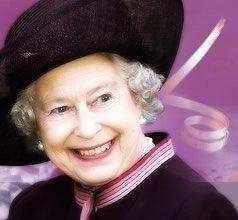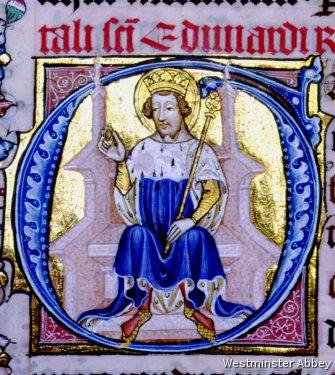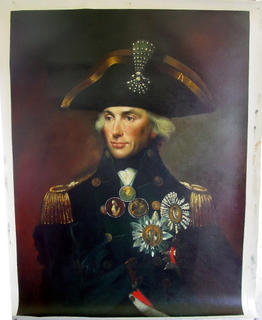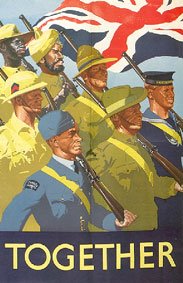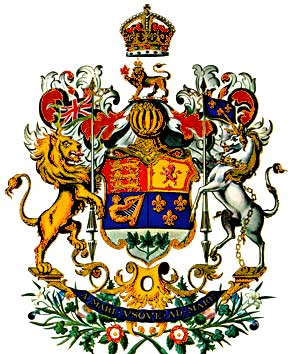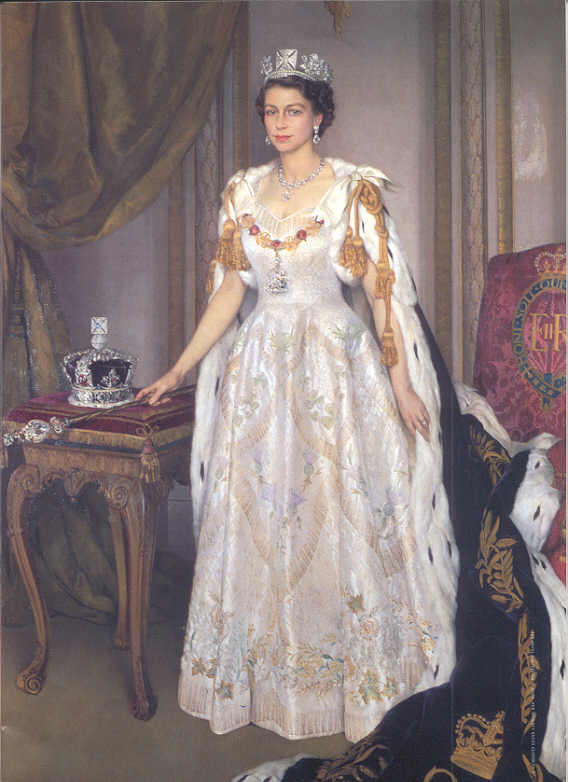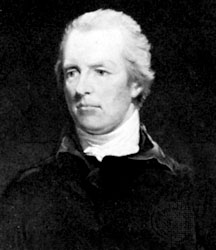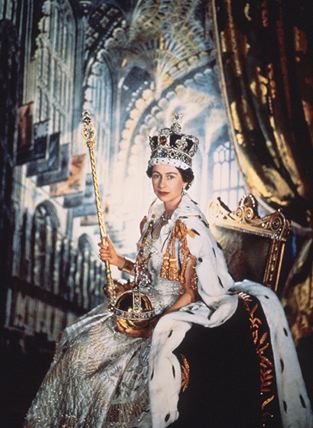[+] HONOURING OUR PATRON, SIR WINSTON CHURCHILL, VICTOR OF THE ENGLISH-SPEAKING PEOPLES
[+] HONOURING OUR QUEEN, ELIZABETH THE SECOND, ON THE 80TH YEAR OF HER BIRTH (1926 - 2006)
[+] HONOURING OUR KING, SAINT EDWARD THE CONFESSOR, ON THE 1000TH YEAR OF HIS BIRTH (1005 - 2005)
[+] HONOURING OUR HERO, LORD NELSON, ON THE BICENTENNIAL OF THE BATTLE OF TRAFALGAR (1805 - 2005)
[+] HONOURING OUR SONS, THE QUEEN'S COMMONWEALTH SOLDIERS KILLED IN THE 'WAR ON TERROR'
[+] HONOURING OUR VETS ON THE 150TH ANNIVERSARY OF THE VICTORIA CROSS (1856 - 2006)
“Commonwealth Free Trade: Challenges and Opportunities”
An address by
Brent H. Cameron
(Author – “The Case for Commonwealth Free Trade”) to the
Royal Commonwealth Society - Toronto Branch
Toronto and North York Hunt Club
1355 Kingston Road
Scarborough, Ontario
August 7, 2005
Ladies and gentlemen, first I would like to thank the Hon. Sinclair Stevens for his generous introduction, and making me sound far more accomplished than I really am. I also want to thank Michael Frederiksen and the Toronto branch of the Royal Commonwealth Society for their invitation to speak to you today. Your kind welcome to my wife, Jodi, and I, is greatly appreciated.
The topic I have chosen for today is “Commonwealth Free Trade: Challenges and Opportunities.” And although I would never portray myself as an expert in economics or international affairs, like most people, I do possess knowledge of a few things.
It was this basic understanding that prompted me to want to write “The Case for Commonwealth Free Trade” and to learn even more about the potential of such a grouping. That process not only served to educate me on the subject, it also reinforced many of the views I held, and helped me to develop them further.
The “case” I speak of is not unlike any other case to be made - in law, in politics, or in business. Any of these cases stands or falls on evidence. The more evidence you have, the better – especially if that evidence is compelling and immediately makes sense to those who sit in judgment.
My search for evidence came from simply observing the world in which we live, and the kinds of debates we have – both here in Canada and elsewhere.
What struck me were the patterns to these debates, the same concerns being expressed, and how the answer to them all seemed to lie in a particular approach. Again, borrowing the jargon of the courts, we can break this case down to two parts – motive and opportunity. First, the motives.
We see a world becoming increasingly dominated by larger economic powers and trading blocs, such as the United States, the European Union, Japan, and China. We see their power in protecting their political self-interest when it comes to negotiations in the World Trade Organization over fundamental trade disagreements, particularly in agricultural commodities.
We see our own access to the American market lay vulnerable to political pressures and protectionism. The ongoing dispute over softwood lumber, and the protracted resolution to the closure of the border to Canadian beef illustrate that while the vast majority of our dealings are amicable, free trade is not necessarily synonymous with fair trade.
Beyond this, we see that any reaction on our part must be tempered by the knowledge that over 80% of our exports are dependent on this one particular relationship. And again, you do not need to be an economist or a captain of industry – and if there are any of you here who match that description, I sincerely apologize – but you don’t need to be either to understand how that reliance impacts the choices we make as a country.
If a circuit court judge in Billings, Montana can rule in such a way as to cost Canada’s cattle industry hundreds of millions of dollars, then is it not incumbent on us to investigate better ways to trade? Canada, however, is not unique in its vulnerabilities in the new global economy.
Caribbean nations, whose textile industries were once protected by the Multi-Fiber Agreement, now must compete toe-to-toe with the emerging power of China. Lower agricultural commodity prices and a depressed tourism industry, post 9/11, do not give these countries many other promising alternatives.
The nations of Sub-Saharan Africa have endeavoured for quite some time to reform their economic and political systems. With the notable exception of Zimbabwe, they are making progress. Indeed, there are at least a half-dozen nations in this region that are moving toward their “millennium development” goals. Tanzania, for example, is putting in place the means to guarantee primary level education for all its citizens.
The demand placed upon the West, in return for these efforts, is the simple request of “trade, not aid.” Without the means to earn money abroad, these states will remain dependent on loans and largesse from the developed world.
Australia and New Zealand, economically successful in the world, also recognize the enormous challenge facing them. Despite what growth and efficiency they have gained from their own free trade agreement, both must grapple with the challenge of being part of a region dominated by China and Japan, and understand that the future brings the need to make hard choices.
Britain’s conflicted relationship with its EU partners continues to be a source of endless debate and discussion. Some of its leaders remain passionately “euro-friendly”, and yet even they are unwilling to scrap the Pound for the Euro, or give up the rebate negotiated by the Thatcher government in the early 1980’s, or accept the continuation of a generous agricultural scheme that benefits mainly French farmers at the expense of not only Britain, but the achievement of a worldwide comprehensive trade deal to end farm subsidies – the lynchpin of the current round of WTO negotiations. Many British critics of the EU still support economic ties with Europe – it is the parallel political project that they are skeptical of.
Then, of course, there is the position of India, whose economy is growing at a rate exceeded only by China’s. It possesses all of the necessary attributes to match, or exceed, its Asian neighbour, save one. The investment banking firm Goldman Sachs reported that capital inflows into China were two and a half times greater than into India, despite India’s democratic political system, a more transparent capital market, a more advanced legal system, and a banking sector with fewer bad, or underperforming, loans.
These, and many other points I have not mentioned, represent a strong and compelling motivation for a new economic partnership within the Commonwealth. But to complete the case, we need to show opportunity. Well, let me share with you some quick facts.
One, the Commonwealth possesses 1/3 of the world’s population, spread through 53 countries on every habitable continent on the planet.
Two, Commonwealth members account for 20 percent of the world’s commerce, and 40 per cent of the membership of the World Trade Organisation.
Three, Commonwealth members are represented in virtually every international organisation in existence – the UN, the G8, the OECD, the Organisation of American States, NAFTA, the European Union, ASEAN, NATO, to name but a few.
Four, we share a common language of business, education, and scientific research. We also share legal and political structures inspired by English common law, and the Westminster Parliamentary model.
We share membership in the Commonwealth, whose range of activities run the gamut from fostering good governance, to promoting health and education, to press freedoms and civil society, to capacity building.
Our nations cooperate and coordinate on various levels – between governments, between business actors and academic institutions, and among NGO’s and other groups involved in the promotion of civil society.
Lastly, we have some of the fastest growing economies in the world – economies with enormous untapped potential. If you wish to take anything from what I say today, these two points should be it.
Research done by Sarianna Lundan and Geoffrey Jones on behalf of the Commonwealth Secretariat in 1997 had detected evidence of a “Commonwealth Effect” in trade relations. That is, even without formal free trade agreements, Commonwealth economies are naturally drawn together for many of the reasons I just cited. The Commonwealth Business Council estimates that these shared attributes cut the cost of doing business by more than ten per cent compared to dealings with non-Commonwealth nations. According to Savita Bailur of the Commonwealth Policy Studies Unit, the results suggest “the Commonwealth can indeed be thought of as a de facto trade and investment network.”
Now, just translate this propensity to its full potential. Canada’s per capita GDP sits at around US$28,000. If a Commonwealth Free Trade Association were to have full participation from member states, and develop to such an extent as to raise its per capita GDP to only US$21,000, this group’s economy would be valued in excess of US$45 trillion.
Putting this into perspective, a CFTA would be more than the equivalent of adding the economies of the United States and the European Union together – and doubling it.
So we have motivation, and we have opportunities. The only question that remains is do we have the will? I suppose that the answer to that question depends on whether we see the opportunities inherent in a new trading regime, or we are sufficiently concerned about the challenges we face if the status quo is left unchanged.
In the end, I likely offer more questions than answers, but that is how it should be. After all, this is the beginning of a debate, not the end.
Your organization already, has offered its contribution. The “Commonwealth Advantage” is a pragmatic response to the challenge, and whatever success you may have in its development, rest assured that you have already moved this debate forward. So often, it is through the actions of individuals and groups outside of government where we see the political agenda moved along.
If I do anything here today, I want to have convinced you that nurturing our Commonwealth ties is a relevant and worthwhile endeavour. It is not simply about the ancient symbols of the Monarchy, nor is it about some long held romanticized notion of Empire. Rather, it represents one of our best hopes at guaranteeing the prosperity we have today, and expanding its promise both here and abroad.
I am one of an increasing number of people who sincerely believe that strengthening the economic ties within the Commonwealth is a logical and pragmatic way of building a better Canada, a more inclusive model for globalisation, and a much more prosperous world.
Thank you.


